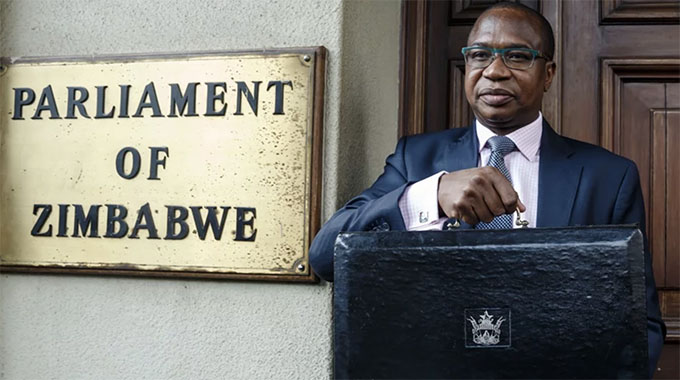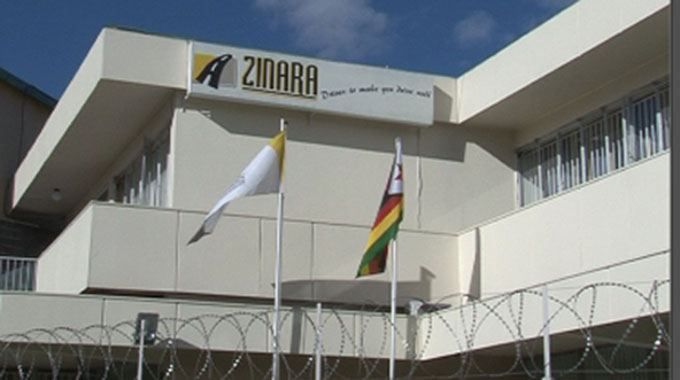Budget to up production, create jobs

Africa Moyo Deputy News Editor
FINANCE and Economic Development Minister Mthuli Ncube is on Thursday expected to present the first growth Budget of the Second Republic.
Production goals are expected to be given priority now that the austerity of the interim reforms has cleared the decks.
Fiscal discipline will be maintained with the 2020 Budget expected to look at spending of $28,5 billion, adjustable upwards by 30 percent to cope with inflation.
However, the minister is expected to ensure that he maintains his primary Budget surpluses and restricts Government borrowing to the capital account.
He is expected to maintain the 2 percent Intermediated Money Transfer Tax.
Prof Ncube insists the tax is low, spread right across the population and so has a broad base, and helps in efforts to switch the economy from consumption to production.
Both President Mnangagwa and Prof Ncube have said Zimbabwe is now moving out of the pure austerity programme, towards economic growth driven by increased production.
The Budget is expected to announce measures that promote industry, mining and agriculture.
The Herald understands that the Budget will not announce any measures that will shock the market, but those that seek to grow industrial capacity and safety nets to cater for the vulnerable.
Measures to address high transport costs will continue, with more Zupco buses set to arrive from South Africa, Belarus and China, while more kombis will be co-opted into the mass urban transportation strategy.
Subsidies for public transport are to continue to be budgeted and tied to appropriate tax revenue.
Prof Ncube believes in subsidies that are planned, budgeted and targeted at vulnerable groups.
The 2020 Budget is expected to contain measures that ensure the objectives of Transitional Stabilisation Programme (TSP), Zimbabwe National Industrial Development Policy and Local Content Strategy, are met.
Some of the measures include provision of lines of credit through guarantees, venture capital and tax incentives to boost operations and accelerate job creation.
The Industrial Development Corporation (IDC) will be capacitated to nurture selected strategic industries.
Confederation of Zimbabwe Industries (CZI) president Mr Henry Ruzvidzo last week said industrialists expect measures that will boost capacity utilisation.
Mr Ruzvidzo wants the Government to step up the pace of construction of the Harare-Beitbridge highway, which is seen as critical in the transportation of goods.
He said the observation by the Monetary Policy Committee (MPC) that fundamentals for economic growth were now in place, “is a profound” because it shows there is light at the end of the tunnel.
“As industry, capacity utilisation is below 40 percent, probably in the lower 30s. Depending on what we do from here going forward, it is a huge opportunity of growing the economy from because if we only take that capacity utilisation up to 70 percent, up to 80 percent, very quickly we have the economy responding,” Mr Ruzvidzo told the Economic Development and Financial indaba last week.
“So in the Budget, we expect measures that will induce utilisation of that idle capacity. These may include reduction of the tax burden. I think the position of the CZI on the 2 percent intermediated transfer tax is well-known, we have lobbied (and) hopefully the minister will come up with some measures that address our concerns.”
Industry also wants the Budget to address the “regulatory burden”, which sees investors contending with numerous laws from company formation, to production and exportation.
Prof Ncube has said the issue of too many laws will be addressed under the auspices of ease of doing business reforms.
Mr Ruzvidzo said industry wants measures that improve market access through discouraging the importation of products that can be produced locally, a move that also saves forex.
Industrialists and employees also expect the Budget to pay attention to economic enablers, especially electricity and water, which have constrained operations.
Erratic electricity and fuel supplies have seen some companies scaling down and employees were on short time, which affects their earnings.
Employees also want the Budget to expand the tax-free threshold and expand tax bands to give them more disposable income.
Economic commentator Mr Langton Mabhanga expects the Budget to have measures that promote “high productivity”, pro-youth economic programs, a jobs creation strategy and a strategy to transform the health sector.
“The minister (Prof Ncube) must also lift the nation’s spirit by profiling the yield of austerity measures, including price and currency stability, and the road to single digit inflation.”
Mr Mabhanga also wants Prof Ncube to protect Fidelity Printers and Refiners (FPR)’s schemes from being turned into avenues that “prop up the gold black market”.







Comments